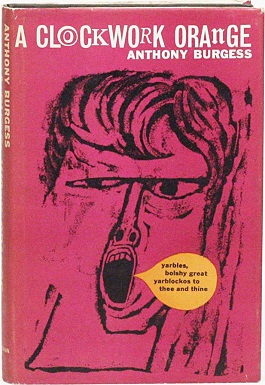
A Clockwork Orange is a dystopian satirical black comedy novel by English writer Anthony Burgess, published in 1962. It is set in a near-future society that has a youth subculture of extreme violence. The teenage protagonist, Alex, narrates his violent exploits and his experiences with state authorities intent on reforming him. The book is partially written in a Russian-influenced argot called "Nadsat", which takes its name from the Russian suffix that is equivalent to '-teen' in English. According to Burgess, the novel was a jeu d'esprit written in just three weeks.
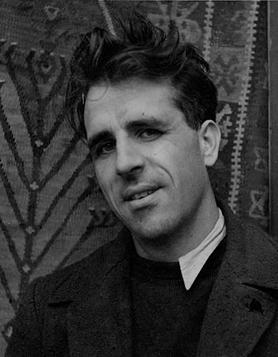
Mervyn Laurence Peake was an English writer, artist, poet, and illustrator. He is best known for what are usually referred to as the Gormenghast books. The four works were part of what Peake conceived as a lengthy cycle, the completion of which was prevented by his death. They are sometimes compared to the work of his older contemporary J. R. R. Tolkien, but Peake's surreal fiction was influenced by his early love for Charles Dickens and Robert Louis Stevenson rather than Tolkien's studies of mythology and philology.

Jeffrey Kent Eugenides is an American author. He has written numerous short stories and essays, as well as three novels: The Virgin Suicides (1993), Middlesex (2002), and The Marriage Plot (2011). The Virgin Suicides served as the basis of the 1999 film of the same name, while Middlesex received the 2003 Pulitzer Prize for Fiction in addition to being a finalist for the National Book Critics Circle Award, the International Dublin Literary Award, and France's Prix Médicis.
A batman or orderly is a soldier or airman assigned to a commissioned officer as a personal servant. Before the advent of motorized transport, an officer's batman was also in charge of the officer's "bat-horse" that carried the officer's kit during a campaign. This British English term is derived from the obsolete bat, meaning "pack saddle".
David John Lodge CBE is an English author and critic. A literature professor at the University of Birmingham until 1987, some of his novels satirise academic life, notably the "Campus Trilogy" – Changing Places: A Tale of Two Campuses (1975), Small World: An Academic Romance (1984) and Nice Work (1988). The second two were shortlisted for the Booker Prize. Another theme is Roman Catholicism, beginning from his first published novel The Picturegoers (1960). Lodge has also written television screenplays and three stage plays. After retiring, he continued to publish literary criticism. His edition of Twentieth Century Literary Criticism (1972) includes essays on 20th-century writers such as T. S. Eliot. In 1992, he published The Art of Fiction, a collection of essays on literary techniques with illustrative examples from great authors, such as Point of View, The Stream of Consciousness and Interior Monologue, beginning with Beginning and ending with Ending.

Military service is service by an individual or group in an army or other militia, air forces, and naval forces, whether as a chosen job (volunteer) or as a result of an involuntary draft (conscription).

Barmy in Wonderland is a novel by P. G. Wodehouse, first published in the United Kingdom on 21 April 1952 by Herbert Jenkins, London, and in the United States on 8 May 1952 by Doubleday & Company, New York, under the title Angel Cake. The novel may be considered part of the expanded Drones Club canon, since the main character Barmy Fotheringay-Phipps is a member of the club.

In Turkey, compulsory military service applies to all male citizens from 21 to 41 years of age. It is 6 months for all males regardless of education degree. Different rules apply to Turks abroad. For Turks with multiple citizenship, the conscription lapses if they have already served in the army of another country.
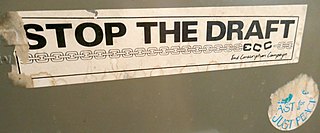
The End Conscription Campaign was an anti-apartheid organisation allied to the United Democratic Front and composed of conscientious objectors and their supporters in South Africa. It was formed in 1983 to oppose the conscription of all white South African men into military service in the South African Defence Force.

Gary David Schmidt is an American author of children's and young adults' fiction books. He currently resides in Alto, Michigan, where he is a professor of English at Calvin University.
The non-fiction novel is a literary genre that, broadly speaking, depicts non-fictional elements, such as real historical figures and actual events, woven together with fictitious conversations and uses the storytelling techniques of fiction. The non-fiction novel is an otherwise loosely defined and flexible genre. The genre is sometimes referred to using the slang term "faction", a portmanteau of the words fact and fiction.

In the United Kingdom, military conscription has existed for two periods in modern times. The first was from 1916 to 1920, and the second from 1939 to 1960. The last conscripted soldiers left the service in 1963.
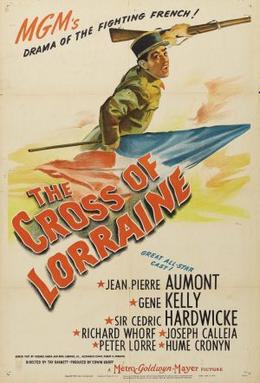
The Cross of Lorraine is a 1943 Metro-Goldwyn-Mayer war film about French prisoners of war escaping a German prison camp and joining the French Resistance. Directed by Tay Garnett, starring Jean-Pierre Aumont and Gene Kelly, was partly based on Hans Habe's 1941 novel A Thousand Shall Fall. The title refers to the French Cross of Lorraine, which was the symbol of the Résistance and the Free French Forces chosen by Charles de Gaulle in 1942.
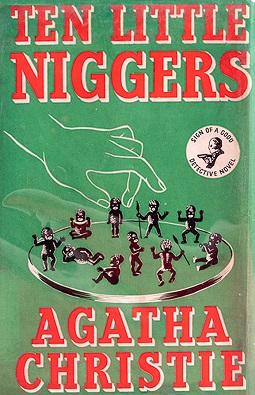
And Then There Were None is a mystery novel by the English writer Agatha Christie, who described it as the most difficult of her books to write. It was first published in the United Kingdom by the Collins Crime Club on 6 November 1939, as Ten Little Niggers, after an 1869 minstrel song that serves as a major plot element. The US edition was released in January 1940 with the title And Then There Were None, taken from the last five words of the song. Successive American reprints and adaptations use that title, though American Pocket Books paperbacks used the title Ten Little Indians between 1964 and 1986. UK editions continued to use the original title until 1985.

Get Some In! is a British television sitcom about National Service life in the Royal Air Force, broadcast between 1975 and 1978 by Thames Television. Scripts were by John Esmonde and Bob Larbey, the team behind sitcoms such as The Good Life.
Yang Kyoungjong was a Korean soldier who, according to some, fought in the Imperial Japanese Army, the Soviet Red Army, and later the German Wehrmacht during World War II.
"You're in the Army Now" also known as "We're in the Army Now" is an American song written in 1917 by Isham Jones. Lyrics were written by Tell Taylor and Ole Olsen.

A Brief Stop on the Road from Auschwitz is a 2012 book by Swedish author Göran Rosenberg, variously described as a novel and a non-fiction narrative book.











